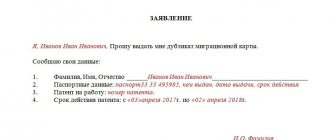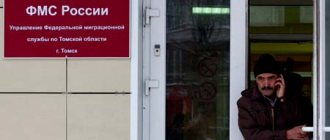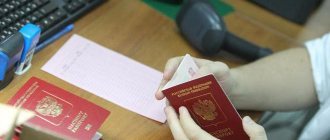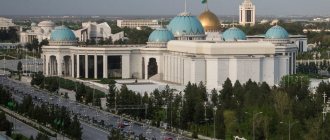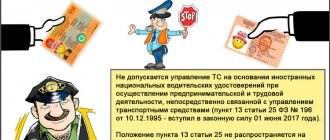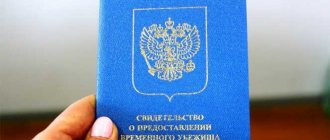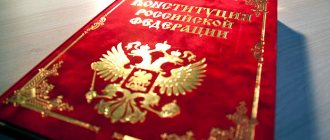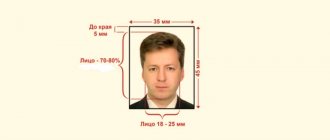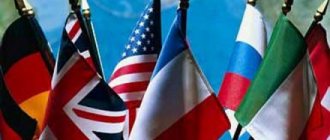The day before, the head of state signed a new Concept of migration policy designed until 2025. We can say that this event was the first step in the beginning of work to counter the migration threat that is already affecting European countries. The unstable Middle East and the humanitarian crisis in North Africa have become a source of refugees who migrate to countries where the population has a better quality of life.
With Europe closing, Russia is becoming increasingly attractive to migrants from the Middle East, which requires our country to be extremely attentive to the issue of migration policy. Entering a new political cycle, President Vladimir Putin began to move political discourse in this direction.
Migrants are like a spare tire for the economic cart
On Wednesday, October 31, Russian President Vladimir Putin signed a new edition of the Concept of Migration Policy (hereinafter referred to as the Concept), which stipulates the basic principles for the existence of foreigners in Russia until 2025. The corresponding document was published on the official legal information portal.
If we move away from such dry formulations as “solving problems in the field of socio-economic, spatial and demographic development of the country,” then the goal of the new migration policy was to shift the focus from migrants to the birth rate. Previously, many demographic problems were hidden behind the statistics of a large regular influx of immigrants from the CIS countries. The new document openly declares that the main source of labor resources should be the population that was born in the country. And guests from neighboring countries are just an additional economic tool.
It is recognized that for the period from 2012 to 2021. The migration influx compensated for the natural population decline in Russia and became a source of additional labor resources for the national economy. But this Concept states that the main source of population replenishment should be the birth rate within the country. The document also provides for measures to prevent the emergence of spatial segregation, the formation of ethnic enclaves and the marginalization of foreigners located in our country.
The average annual number of migrant workers in Russia, according to the latest data presented in the Concept, is about 3 million people or 3-4% of the average annual number of all labor resources. About 10 million foreigners arrive in Russia every year, a significant proportion of whom are unskilled workers. The large cities of the European part of the country, as well as the border areas of Siberia and the Far East, become a magnet for them. If at the same time we compare data on internal migration, which shows the movement of Russians to the capitals of Moscow and St. Petersburg, it turns out that if decisions on the unpopulated Far Eastern territories are not made, then half of the country could turn into a refuge for migrants.
Return of Russian emigration
The need to create a favorable regime for the voluntary resettlement to Russia of “persons, including those who left it, who are able to organically join the system of positive social connections and become full members of Russian society” is modestly stated. The document notes that more than 2 million Russian citizens are registered with consulates abroad. Every year about 60 thousand Russians go abroad to work. And it is clear that some of the most sought-after and qualified workers are leaving the country.
Source: Kremlin press service
On the same Wednesday when the Concept was signed, President Vladimir Putin spoke at the VI World Congress of Compatriots Living Abroad. The leader of the state began to say that in recent months he had seen an increase in those wishing to return back to Russia. Moreover, the president began to promise that he intends to continue to simplify the adaptation process for all those who are ready to return to Russia.
We will continue to facilitate the adaptation process, simplify procedures, together with regional and local authorities, entrepreneurs, and public organizations, we will work to improve the quality of life of displaced people, create jobs for them, and improve conditions for doing business. I know firsthand, I know that there are still many, many problems here. Together with you we will analyze these problems and get rid of them.
— Vladimir Putin, President of Russia
The head of state also said that Russia is interested in ensuring that young compatriots living abroad do not lose their roots, their “Russianness,” and do not lose touch with their Motherland. Therefore, the youth area is one of the most in demand in work.
Over the 12 years of the program for the voluntary resettlement of compatriots, about eight hundred thousand people moved to Russia and were distributed among 66 constituent entities of the Federation, Vladimir Putin said during the congress. As part of the state program, 51.3 thousand compatriots have resettled since the beginning of 2021. According to the Ministry of Internal Affairs, in the second quarter of this year, 38.9% of migrants arrived in the country from Kazakhstan, and only 19.4% from Ukraine. Among those countries from which Russians prefer to return are also Armenia, Tajikistan and Uzbekistan.
Source: Monitoring of the Ministry of Internal Affairs of the Russian Federation, dedicated to the implementation of the State program to assist the voluntary resettlement of compatriots living abroad to the Russian Federation in the settlement territories of the constituent entities of the Russian Federation in the second quarter of 2021*
The percentage of those returning from the Baltic countries in the second quarter was 0.2%, similar to the figure at the beginning of the year. As we see, compatriots are actively returning from those countries that previously existed within the USSR on a par with Russia. In the western direction there are significantly fewer people who want to move back.
What will change in migration policy
Good news for those who dream of obtaining Russian citizenship, but still cannot do it for bureaucratic reasons. Photo TASS/ Alexey Pavlishak
The KP special correspondent looked into a fairly voluminous document entitled “List of instructions on the implementation of the Concept of State Migration Policy for 2019-2025.”
The document is addressed to the Government, the Ministry of Internal Affairs, the Ministry of Foreign Affairs, the FSB, the Ministry of Justice and the Administration of the President of the Russian Federation. Already from the list of recipients of the “instruction” it is clear that the adjustment of migration policy will be dealt with at the highest level and not only within one department - in recent years, after the abolition of the Federal Migration Service, the police have been involved in migration. What will change?
Total control
“The level of application of information technology in the provision of public services and the exercise of state control in the field of migration remains low.”
The main thing in the order is the creation of an “information platform.” Indeed, in the era of digitalization, it is migration processes that have remained on the sidelines of all innovations. The same Federal Migration Service has been asking for almost a dozen years to introduce at least fingerprinting of all arriving migrants. The FMS usually laughed it off until the structure was abolished. Now such a multi-headed electronic monster as Gosuslugi is successfully operating in Russia. At the moment, the portal unites a dozen departments and greatly simplifies life for everyone - both officials and ordinary people. For example, from my own experience, at the age of 45, it took me less than a week to exchange a passport issued in St. Petersburg, without leaving Moscow. And only migrants still fill out “Notifications of the arrival of a foreign citizen” at the post office and send them “by a valuable letter with a list of documents.” Or they don't send it. Just like in the 19th century. A special accounting system and special identification cards for migrants will be created, as stated in the “instruction” - “with an information carrier,” that is, with a chip. The traditional migrant practice of expulsion from the Russian Federation for violations or even crimes and receiving a passport with new data in their native village will no longer work. The “Unified Information Migration Platform” (conventional name) will be difficult to deceive.
In the era of digitalization, it is migration processes that have remained on the sidelines of all innovations
Photo: Alexey BULATOV
Liberalization for “our own”
Good news for those who dream of obtaining Russian citizenship, but still cannot do it for bureaucratic reasons. The document states that “situations have not yet been completely eliminated when people who are able to organically join the system of positive social connections and become full members of Russian society face unjustified difficulties in obtaining citizenship of the Russian Federation.” Therefore, it is necessary: “Creating favorable conditions for resettlement to the Russian Federation and obtaining, if desired, Russian citizenship by persons who speak Russian and are close to us in mentality and culture.”
Thus, the authorities once again outlined the main migration vector - the gathering of “their own”, scattered and separated by borders.
RVP is canceled
The president’s proposals state that “permanent residence (residence permit) will become the main migration status, allowing a foreign citizen in the future to apply for citizenship of the Russian Federation in a general and simplified manner.”
In addition, according to the document, “a temporary residence permit (TRP – corr.) as a separate migration status, which is a step before obtaining a residence permit and provided within the allocated quotas, is excluded.
This is due to the fact that the institution of a temporary residence permit in its current form has actually become obsolete.”
The main status that will now be in demand by the majority of displaced persons and migrants is “residence permit”
Photo: Alexey BULATOV
With the introduction of the “Unified Information Platform”, the RVP will die out by itself and turn into a redundant, duplicative, intermediate document. There were many complaints about temporary residence permits - firstly, this status was actively traded. Secondly, anyone who entered Russia and received a temporary residence permit was immediately deprived of mobility. If a person with a temporary residence permit works and lives in a place other than where he received the document, it will be cancelled. If the holder of a temporary residence permit, who has the right to travel to his small homeland for 180 days, stayed abroad for at least one extra day (!), the document was confiscated.
“Residence permit” is our everything
The main status that will now be in demand by the majority of displaced persons and migrants is “residence permit”
The document clearly states the basic requirements for obtaining it: registration in the state information system, residence on the territory of the Russian Federation, compliance with the legislation of the Russian Federation, absence of dangerous diseases and, as a rule, knowledge of the Russian language.”
The validity period of a residence permit is not limited: “a foreign citizen has the right at any time to refuse a residence permit and obtain a different status for legal stay on the territory of the Russian Federation.”
This formulation gives a sense of stability and hints at prospects. No “temporary”, psychologically, this is important for a migrant.
Three procedures for obtaining a Russian passport
“It is proposed to establish three types of procedures for admission to citizenship of the Russian Federation: general, simplified and special.
General
The general procedure is admission to citizenship on general terms and applies “by default” to all foreign citizens and stateless persons,
Simplified
The simplified procedure applies to persons in respect of whom some of the requirements provided for in the general procedure are waived due to the origin of these persons from countries that are close to us in sociocultural terms, the presence of positive social ties in the Russian Federation, a vulnerable situation, etc.
The authorities once again outlined the main migration vector - the gathering of “their own”, scattered and separated by borders
Photo: Alexey BULATOV
Special
The procedure will cover certain categories of persons, the decision on which requires an assessment of non-obvious facts and, in connection with this, commission consideration, special procedures and a high level of decision-making.
The decision is made by the President of the Russian Federation. Materials and draft decisions are prepared by the Commission on Citizenship Issues under the President of the Russian Federation.”
The most important thing in this section is “vulnerable position”. Our mechanism for recognizing a person as a “political refugee” still does not work. It is precisely because of this that, several years ago, a series of scandals took place across the country when Donbass militiamen, born and registered in Kharkov or Kyiv, were completely legally tried to be extradited to Ukraine. Where, by the way, they were automatically threatened with a prison sentence of 10 years for participation in “illegal armed groups.” If "vulnerabilities" were given clear legal language, the problem would go away. The same applies to the special procedure for obtaining citizenship. Of course, no one at the Ministry of Internal Affairs will take into account threats on social media. networks and by phone, a burned door in an apartment, a car spray-painted in the colors of the Russian flag (I am listing real examples of pressure on pro-Russian activists in Ukraine). But in the case of obtaining citizenship in a special manner, the commission can and should take these facts into account.
COMPETENTLY
Konstantin ZATULIN, State Duma deputy: “There are no “compatriots” in this document and this is striking”
— These instructions are aimed at improving the existing mechanism. In my opinion, they are not revolutionary, but they make improvements and alleviate problems. I mean, first of all, the refusal of temporary residence permits. Secondly, the need to develop a Unified Information Platform for a full and accurate reflection of migration processes.
All these proposals are based on current practice, and imply the use of the Ministry of Internal Affairs, the main body controlling migration.
The weak side of this document is the lack of guidelines and goals for migration processes. The order is based on the fact that the migration flow is ongoing. As part of the instructions, we do not create additional incentives for migration or prohibitions. We do not consider “desirable” and “undesirable” countries of origin. I noticed that the people who prepared this document never used the word “compatriot” in it. It never mentioned the current state program to facilitate the resettlement of compatriots. Instead of the word “compatriot”, “close in mentality” is used. There are no “compatriots” in this document, and this is striking. I advocate highlighting the repatriation of compatriots as a migration process favorable to us. While I have not seen any revolutionary spirit in this order, we are only moving towards it.
